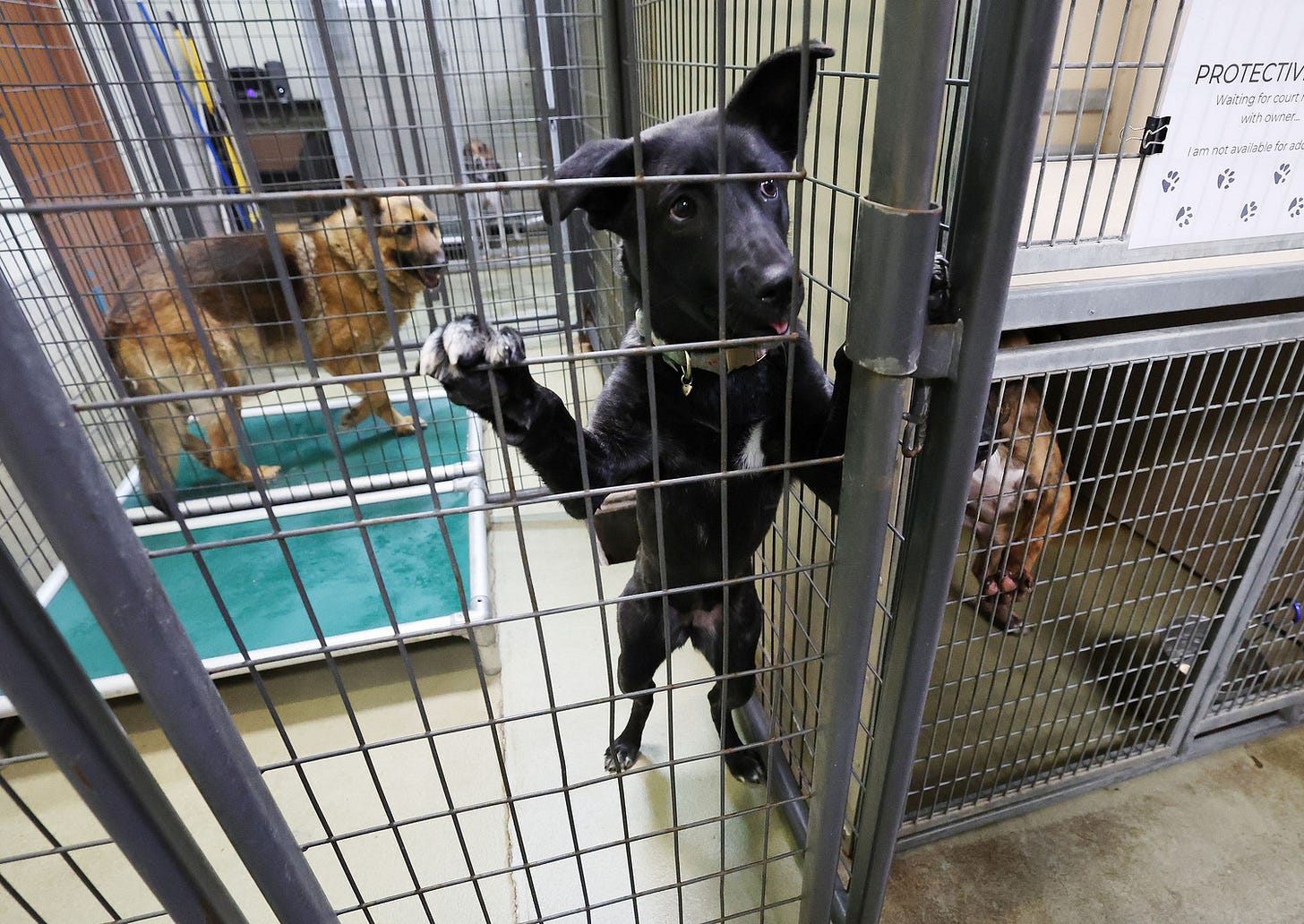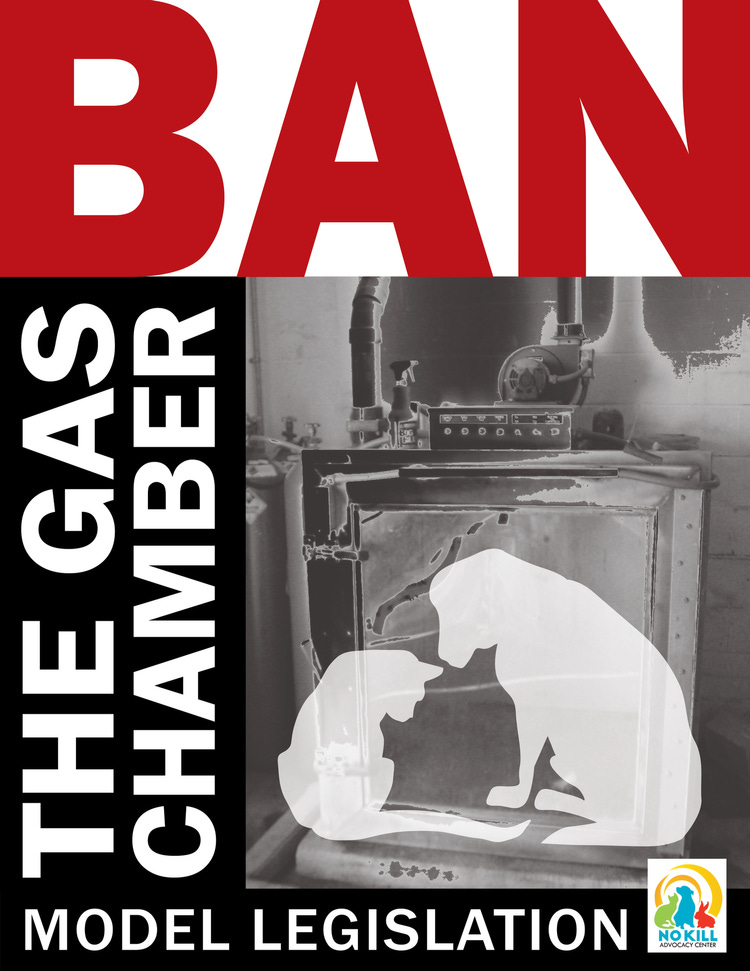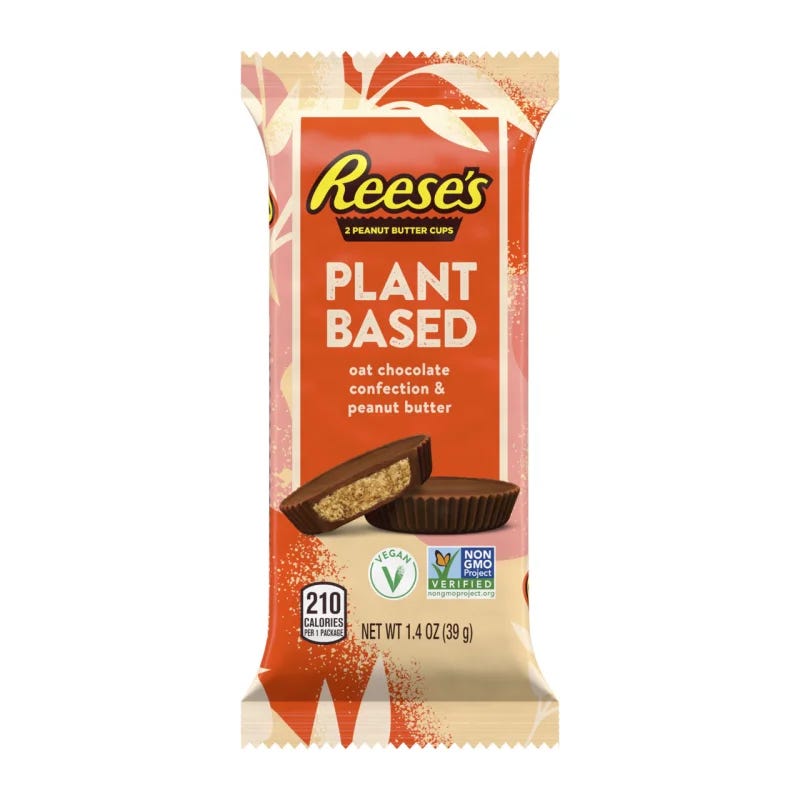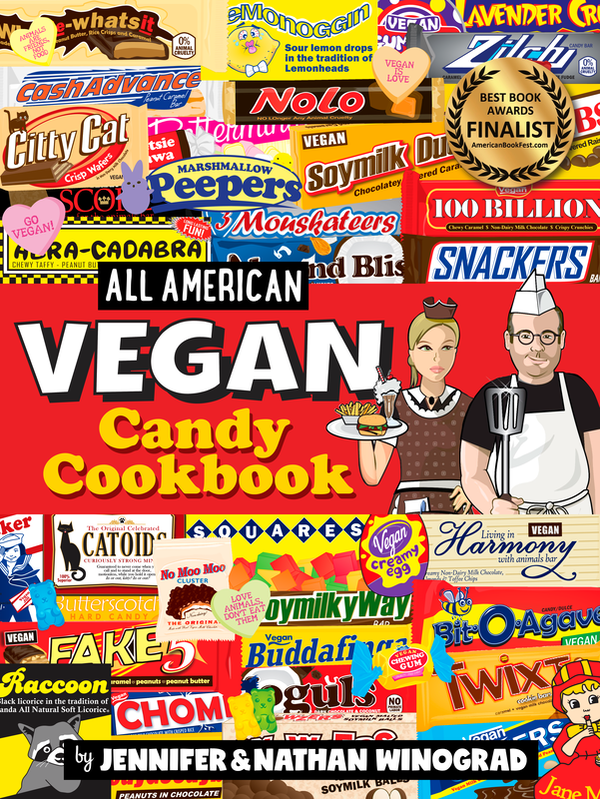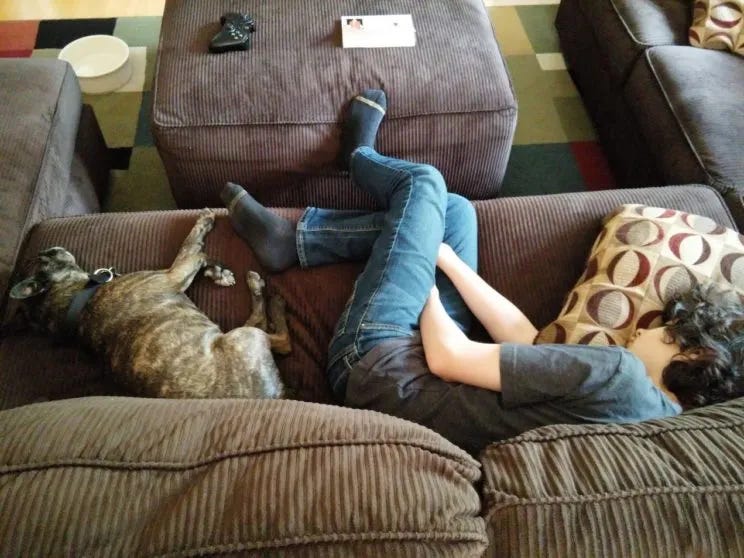The Chernobyl Dogs
News and headlines for March 5 - March 10, 2023
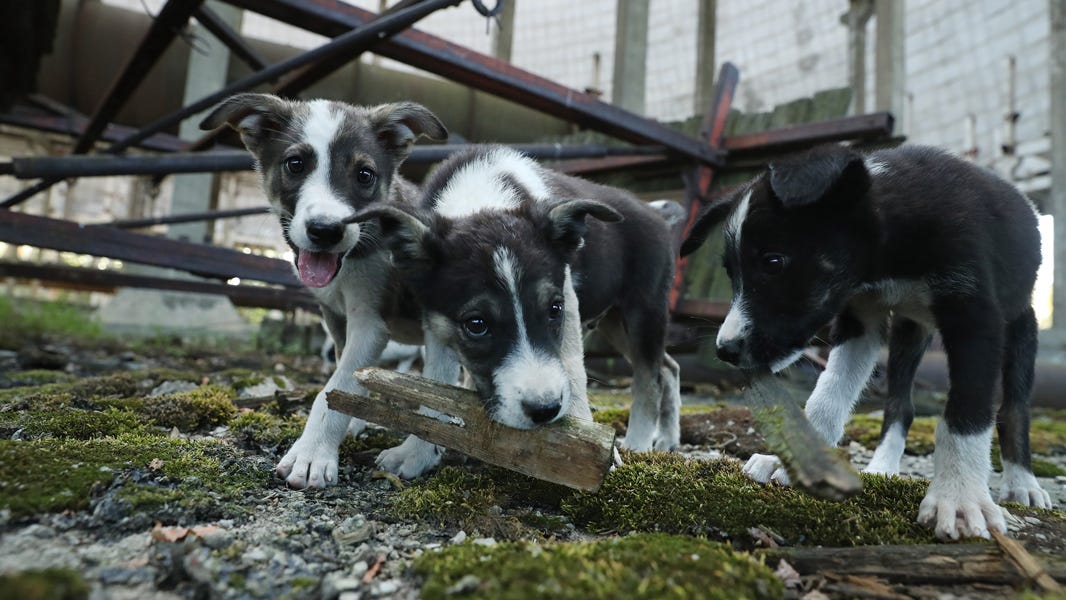
These are some of the stories making headlines in animal protection:
After nine years of trying and failing, the Utah legislature finally passed a bill to ban the gas chamber. The Governor is expected to sign it.
Unfortunately, to survive opposition from some legislators, the bill was amended to exclude animals other than dogs and cats. These animals can still be gassed to death. But if the Governor signs the bill, not dogs and cats. Not anymore.
Webster’s dictionary defines euthanasia as “the act or practice of killing or permitting the death of hopelessly sick or injured individuals in a relatively painless way for reasons of mercy.” Unfortunately, in many animal shelters nationwide, animals are not being killed because they are hopelessly sick or injured but out of convenience. In fact, roughly one million healthy and treatable animals needlessly lose their lives in our nation’s shelters yearly. For some of them, their lives are taken not in a “relatively painless” way but in one of the most prolonged and excruciating ways: the gas chamber.
For those who live in Missouri or Wyoming, the last remaining states that allow gassing dogs and cats, The No Kill Advocacy Center has model legislation to ban it, a step-by-step guide to getting it passed, and our attorneys stand ready to help.
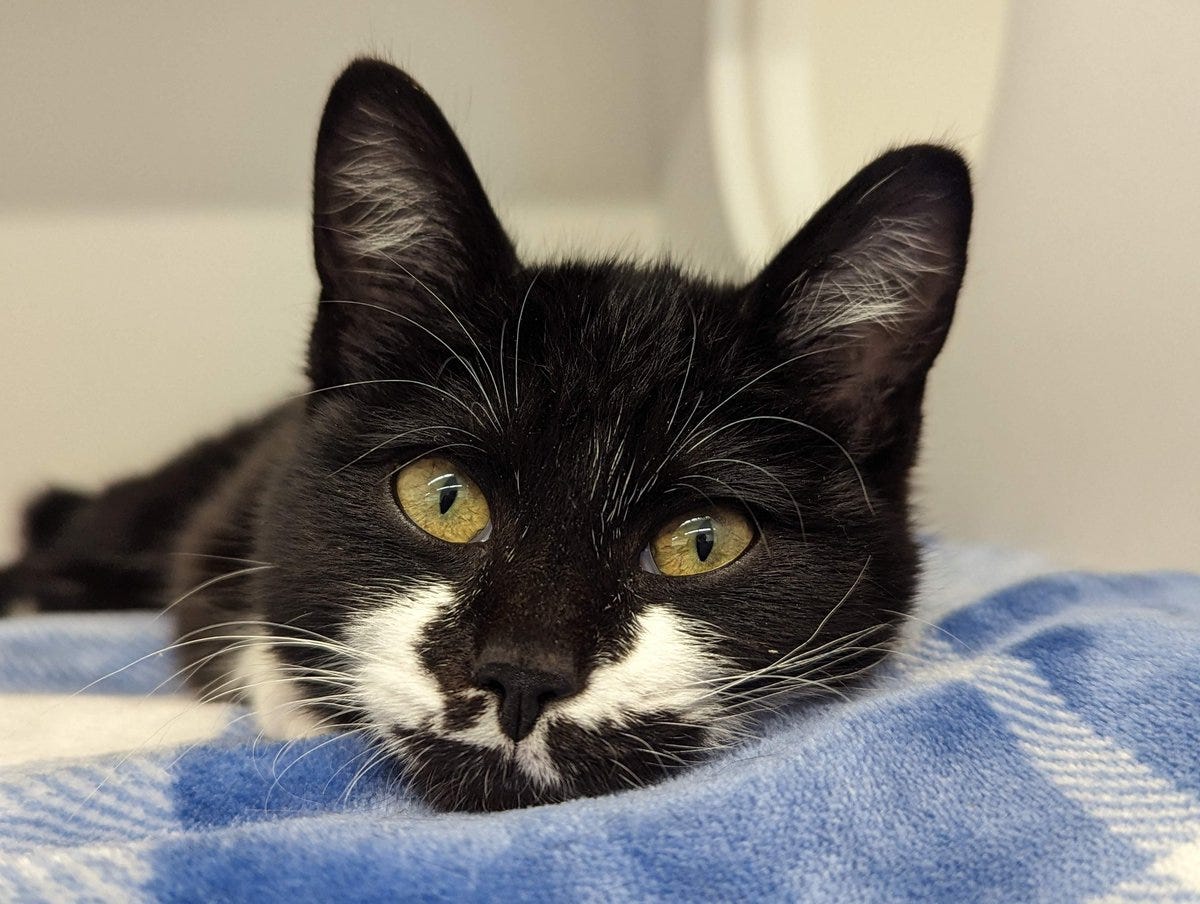
As more people turn to rescue and adoption and more shelters embrace progressive policies, the number of communities placing over 95% and as high as 100% of the animals is increasing.
Williamson County, TX, reported a 99% placement rate for dogs and 94% for cats.
While there is room for improvement, these achievements and the national data prove that animals are not dying in pounds because there are too many, too few homes, or people don’t want the animals. They are dying because people in those pounds are killing them. Replace those people, implement the No Kill Equation, and we can be a No Kill nation today.
Hershey, which makes Reese’s along with Hershey bars, Kisses and other chocolates and candies, announced two new dairy-free products… Reese’s plant-based peanut butter cups, and a vegan chocolate Hershey bar with almonds and sea salt, each made with oats instead of dairy and designed to taste like milk chocolate. The new Reese’s variety will be available nationally this month, and the new Hershey bar is arriving in April.
If you cannot wait for vegan peanut butter cups or vegan versions of other iconic chocolate bars, my All American Vegan Candy Cookbook has plant-based recipes for America’s best-selling commercial candies like Reese’s Peanut Butter Cups©, Snickers©, Milk Duds©, and Twix©, old fashioned favorites such as lollipops, sour balls, rock candy, salt water taffy, fudge, pralines, and rum balls, and holiday favorites including Marshmallow Peeps©, candy corn, candy canes, Sweetheart Conversation Hearts©, and more.
It is available on Amazon.
A new report by Zillow says, “The most pet-friendly city in the country for renters is Austin, Texas, with more than 4 out of every 5 rental listings allowing pets.” So why is Austin’s animal shelter doing so poorly?
Historically, shelters blamed the community for their own failures, including lack of spay/neuter, lack of pet-friendly housing, and lack of adequate funding. And yet the Austin community has pet-friendly housing, one of the best-funded shelter systems in the nation, and people willing to spay/neuter. The problem is shelter leadership. As previously reported, “incompetence and uncaring at Austin Pets Alive and the city’s shelter are responsible for a crisis with lethal consequences for the animals.”
Zillow also reported that “Nationally, 59% of renters in 2022 reported having at least one pet, up from 46% in 2019.” This is good news, but it is not enough. The No Kill Advocacy Center has long called for a ban on housing discrimination by extending existing federal law prohibiting housing discrimination for families with children. It also has written model legislation to do so, a guide to introducing it, and volunteer attorneys stand ready to help.
According to a new report by the American Psychiatric Association, “about 88% of all pet owners said their animals were part of their family.” Almost nine out of 10 people also said, “their pets have a positive impact on their well-being.”
The biggest downside?


